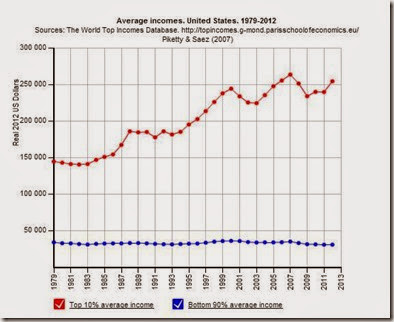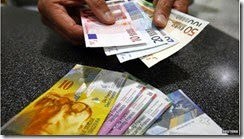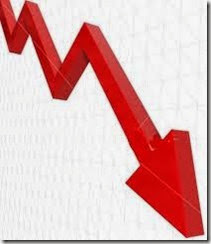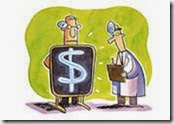 Have you registered for my client breakfast meeting? February 21st at Sycamore Hills Golf Club. Call me 586 295 0430 or write me at pstanley@westminsterfinancial.com Need more info call or email me for particulars.
Have you registered for my client breakfast meeting? February 21st at Sycamore Hills Golf Club. Call me 586 295 0430 or write me at pstanley@westminsterfinancial.com Need more info call or email me for particulars.
The Inflation No One Talks About…  If you’re in your 30’s, and maybe 40’s, this may not be as much of a revelation as someone who’s been around sixty or seventy years. When I started work I remember I paid my social security tax on the first $4,800 of earned income. Today it is on $118,500 of income. That’s about a 7% compounding increase per year. I cannot think of anything that’s compounded at 7% over 50 some years. Not even health care. Today workers pay 6.2% of their income for social security plus 1.45% for Medicare. Employers match that payment. If you are self-employed, as I am, than you pay both sides or 12.4% plus 2.9% up to $118,500 of taxable income. If you were allowed to invest that money rather than paying the social and Medicare tax, and able to earn 5% tax free compound over 35 years, you’d have about $1.3 million. That would be money to use it in any method or way you would like and at any time you’d like. It’s impossible to consider that in another 40-50 years social security could be expected to be taxed at incomes to$250,000 and beneficiaries paying 20% or more of their income to keep the system going. It needs to change.
If you’re in your 30’s, and maybe 40’s, this may not be as much of a revelation as someone who’s been around sixty or seventy years. When I started work I remember I paid my social security tax on the first $4,800 of earned income. Today it is on $118,500 of income. That’s about a 7% compounding increase per year. I cannot think of anything that’s compounded at 7% over 50 some years. Not even health care. Today workers pay 6.2% of their income for social security plus 1.45% for Medicare. Employers match that payment. If you are self-employed, as I am, than you pay both sides or 12.4% plus 2.9% up to $118,500 of taxable income. If you were allowed to invest that money rather than paying the social and Medicare tax, and able to earn 5% tax free compound over 35 years, you’d have about $1.3 million. That would be money to use it in any method or way you would like and at any time you’d like. It’s impossible to consider that in another 40-50 years social security could be expected to be taxed at incomes to$250,000 and beneficiaries paying 20% or more of their income to keep the system going. It needs to change.
DON’T CONFUSE MARKET CORRECTIONS WITH RECESSIONS OR DEPRESSIONS.
 The S&P 500 Index fell 1.9% through January 15th. Apples that sold for a nickel during the first Great Depression would be selling today for $6.50 using a 5% compounding factor. Those were some mighty pricy apples back in the day. Figure today an apple pie based on numbers of yore would cost you about $50.00 .
The S&P 500 Index fell 1.9% through January 15th. Apples that sold for a nickel during the first Great Depression would be selling today for $6.50 using a 5% compounding factor. Those were some mighty pricy apples back in the day. Figure today an apple pie based on numbers of yore would cost you about $50.00 .
Morningstar Stock Investor Had Some Words of Wisdom to Nervous Investors. Here are some Key Principles:
- Ask yourself -Will this matter in five years? Ignore the headlines and noise.
- Invest using money you don’t or won’t need for five years.
- Buy and hold only those stocks that you’d be comfortable holding through a downturn.
 The U.S. and the U.K. launched their Quantitative Easing Programs six years ago, and Japan had their own version two years back, the European Central Bank is embarking on their own QE Plan this week. The big questions are will it work for Europe as it did for the U.S and the U.K. or fail as it has for Japan? The problem goes deeper than merely economics and get the economies moving. It is an attempt to introduce reforms into countries with ‘fierce national’ interests. Which is why there is a ‘more than passing’ interest in the European markets by certain group of investors, and hesitancy by great many others. WSJ 1/19/2015 EUROPEAN CENTRAL BANK PRESIDENT MARIO DRAGHI, CENTER AND ABOVE, LEAVING A DECEMBER BOARD MEETING. ASSOCIATED PRESS PHOTO.
The U.S. and the U.K. launched their Quantitative Easing Programs six years ago, and Japan had their own version two years back, the European Central Bank is embarking on their own QE Plan this week. The big questions are will it work for Europe as it did for the U.S and the U.K. or fail as it has for Japan? The problem goes deeper than merely economics and get the economies moving. It is an attempt to introduce reforms into countries with ‘fierce national’ interests. Which is why there is a ‘more than passing’ interest in the European markets by certain group of investors, and hesitancy by great many others. WSJ 1/19/2015 EUROPEAN CENTRAL BANK PRESIDENT MARIO DRAGHI, CENTER AND ABOVE, LEAVING A DECEMBER BOARD MEETING. ASSOCIATED PRESS PHOTO.
 Lesson Time! (Check, read and recheck) Monday lead story at MarketWatch was that Chinese stocks Plunged 7% after regulators cracked-down on margins. Margin limits (or borrowing money from your brokerage firm) are based upon how much invested you can borrow a percentage of, pay interest on the money you borrow and repay if the underlying stocks fall and margins need to be replenished. According to the story some Chinese brokerage firms (it was a dozen) have played a little loose with the rules and regulators in China finally cracked down last week. If you own Chinese stocks you may have had apoplexy reading the news. Then if you read CNBC’s account by Leslie Schaffer you’d learn that there was no wide spread ban on margin trading but only for certain brokerage firms and for a limited time. And the markets fell 6.4% not 7%. The analysis ended by stating the regulator action was a teapot tempest, a mere blip in the universe of the trading year. Soon to be forgotten. CNBC and MarketWatch.com 1/19/2015. You need to read as much and as many opinions when dealing with any financial event.
Lesson Time! (Check, read and recheck) Monday lead story at MarketWatch was that Chinese stocks Plunged 7% after regulators cracked-down on margins. Margin limits (or borrowing money from your brokerage firm) are based upon how much invested you can borrow a percentage of, pay interest on the money you borrow and repay if the underlying stocks fall and margins need to be replenished. According to the story some Chinese brokerage firms (it was a dozen) have played a little loose with the rules and regulators in China finally cracked down last week. If you own Chinese stocks you may have had apoplexy reading the news. Then if you read CNBC’s account by Leslie Schaffer you’d learn that there was no wide spread ban on margin trading but only for certain brokerage firms and for a limited time. And the markets fell 6.4% not 7%. The analysis ended by stating the regulator action was a teapot tempest, a mere blip in the universe of the trading year. Soon to be forgotten. CNBC and MarketWatch.com 1/19/2015. You need to read as much and as many opinions when dealing with any financial event.
The Stock Tout.  They get paid to promote junk. Someone owns a lot of a certain stock and needs to promote it as a sure thing in order to sell it to someone else. They hire a firm to promote their stock. Make sure you read the fine print when you get the email promoting that ‘sure thing’. In order to stay on just this side of being legal the ‘tout’ needs to fully disclose their position, who hired them and how they are paid.
They get paid to promote junk. Someone owns a lot of a certain stock and needs to promote it as a sure thing in order to sell it to someone else. They hire a firm to promote their stock. Make sure you read the fine print when you get the email promoting that ‘sure thing’. In order to stay on just this side of being legal the ‘tout’ needs to fully disclose their position, who hired them and how they are paid.
 The President Wants to Provide Free 2 Year College Education to Those That Can Maintain a 2.5 Grade Average. Money would come from increased taxation of the uber-rich. Republican leaders scream bloody murder that you can’t give something to someone on the backs of someone else. Then maybe they and the Democrats can better explain how the $100 billion sent to Afghanistan for rebuilding the country’s infrastructure was stolen by those that we were trying to help and nary a peep from either side of the aisle. New Yorker 1-2015. A hundred billion dollars would allow you to buy the Chicago Cubs baseball team and have $99 billion left over. According to Forbes.com
The President Wants to Provide Free 2 Year College Education to Those That Can Maintain a 2.5 Grade Average. Money would come from increased taxation of the uber-rich. Republican leaders scream bloody murder that you can’t give something to someone on the backs of someone else. Then maybe they and the Democrats can better explain how the $100 billion sent to Afghanistan for rebuilding the country’s infrastructure was stolen by those that we were trying to help and nary a peep from either side of the aisle. New Yorker 1-2015. A hundred billion dollars would allow you to buy the Chicago Cubs baseball team and have $99 billion left over. According to Forbes.com
 Investors Business Daily, harsh critic of the President, chastised his New Tax Plan as a Plan for Failure in their 1/21/2015 issue. Commentary by chief economist at the Heritage Foundation Stephen Moore argues that the President’s past Robin Hood redistribution of wealth plans, over six years, have produced the poor getting poorer and the rich richer results. The President said he wanted to tax the rich to help the middle-class. IBD suggests those plans, if passed, could stall the economy. Increasing capital gain taxes has a history of the government getting less money than more. Increasing by 50% the inheritance tax simply means less money invested in family businesses. High taxes on investment and taxes have been practiced in Europe for decades and have turned the entire continent into an economic wasteland.
Investors Business Daily, harsh critic of the President, chastised his New Tax Plan as a Plan for Failure in their 1/21/2015 issue. Commentary by chief economist at the Heritage Foundation Stephen Moore argues that the President’s past Robin Hood redistribution of wealth plans, over six years, have produced the poor getting poorer and the rich richer results. The President said he wanted to tax the rich to help the middle-class. IBD suggests those plans, if passed, could stall the economy. Increasing capital gain taxes has a history of the government getting less money than more. Increasing by 50% the inheritance tax simply means less money invested in family businesses. High taxes on investment and taxes have been practiced in Europe for decades and have turned the entire continent into an economic wasteland.
Tuesday Markets off to roaring good start, petered out by the first hour and finally ended slightly up at the closing. WSJ reported 1/21/2015 a stampede of corporate debt to be issued as corporations taking one last drink from cheap money pool as investors clamor for yield. Wednesday saw the opposite as markets opened lower but also ended slightly higher. Gold and metals up. 1/21/2015
If you have a procedure you don’t have a problem.  Most people spend more time planning a two week vacation than they do their lifetime retirement. The simple reason is that the one is fun and the other is not. I assume that if folks plan their vacations in the same way they plan retirement many would find their experience less than satisfying. In business and in life a process to accomplish a certain goal needs to be followed. Some parts of the process are not as much fun as others. Ignoring those fundamentals doesn’t change things it just creates problems later on.
Most people spend more time planning a two week vacation than they do their lifetime retirement. The simple reason is that the one is fun and the other is not. I assume that if folks plan their vacations in the same way they plan retirement many would find their experience less than satisfying. In business and in life a process to accomplish a certain goal needs to be followed. Some parts of the process are not as much fun as others. Ignoring those fundamentals doesn’t change things it just creates problems later on.
Despite Escalating Volatility U.S. Fundamentals Remain Sound. Robert C. Doll, Senior Portfolio Manager, Nuveen Asset Management, 1-20-2015.
 What’s More Important to You, as an Investor, Asset Allocation or Diversification?
What’s More Important to You, as an Investor, Asset Allocation or Diversification?
To be fully diversified you may need to own 15-20 individual stocks in various investment sectors. Manufacturing, Consumer, Health, etc. Asset allocation is rather like insurance. Investors own shares in various investment sectors: Cash, Equities, Fixed Income and then you can break it down even finer by owning domestic, foreign, frontier and emerging markets. The idea is that not all sectors will perform the same at the same time. If you don’t mind everything going up and down at the same time then investment diversification is more important to you.
WHAT DID FOLKS SPEND THEIR GAS SAVINGS ON? #1 WAS FAST FOOD. FAST FOOD SALES INCREASED AS GAS PRICES FELL. CNBC 1/21/2015. 
Jim Dandy Day @ The Markets! 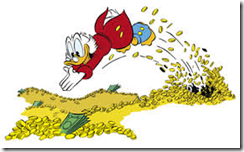 Domestic Markets Finished Up 260 points on the DJIA and 31 points on the S&P Thursday. Mainly markets were up on the news and anticipation of success with the ECB’s (European Central Bank) decision to launch a full scale bond buying program (much like our QE). The idea is to buy corporate and government bonds to the tune of $60 billion a month and keep doing this until September 2016. Still there are naysayers as Michael Hewson, CMA at CMC Markets said in a note Friday morning that, ‘the banking transmission mechanism in the euro area continues to remain impaired, and until that is fixed a lot of this cash is unlikely to trickle down to where it is needed.’ CNBC 1/23/2015
Domestic Markets Finished Up 260 points on the DJIA and 31 points on the S&P Thursday. Mainly markets were up on the news and anticipation of success with the ECB’s (European Central Bank) decision to launch a full scale bond buying program (much like our QE). The idea is to buy corporate and government bonds to the tune of $60 billion a month and keep doing this until September 2016. Still there are naysayers as Michael Hewson, CMA at CMC Markets said in a note Friday morning that, ‘the banking transmission mechanism in the euro area continues to remain impaired, and until that is fixed a lot of this cash is unlikely to trickle down to where it is needed.’ CNBC 1/23/2015
Questions call Paul @ 586 295 0430 or write him at pstanley@westminsterfinancial.com. Share this blog with someone who cares about their money.
SECURITIES OFFERED THROUGH WESTMINSTER FINANCIAL SECURITIES, INC. MEMBER FINRA/SIPC.








